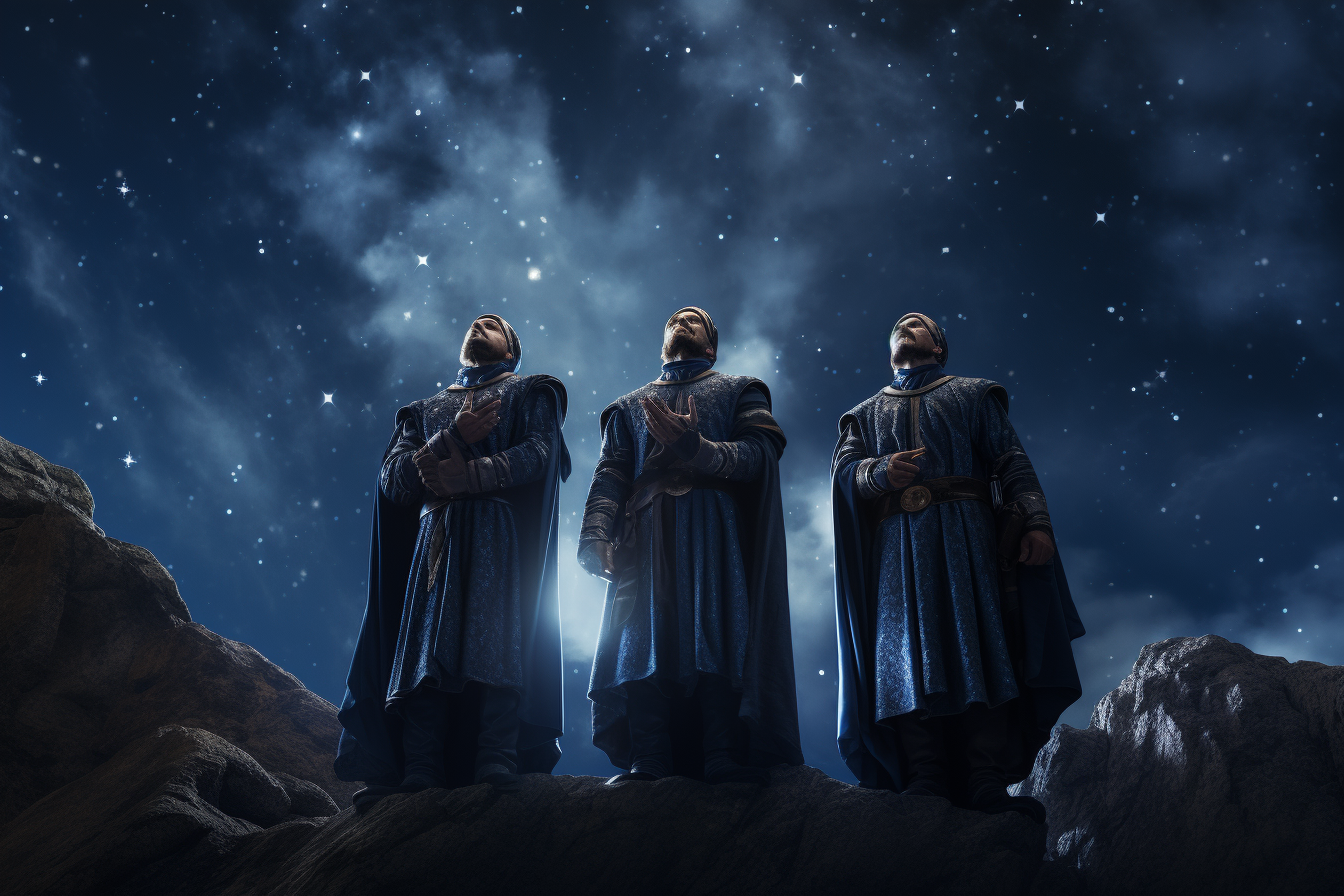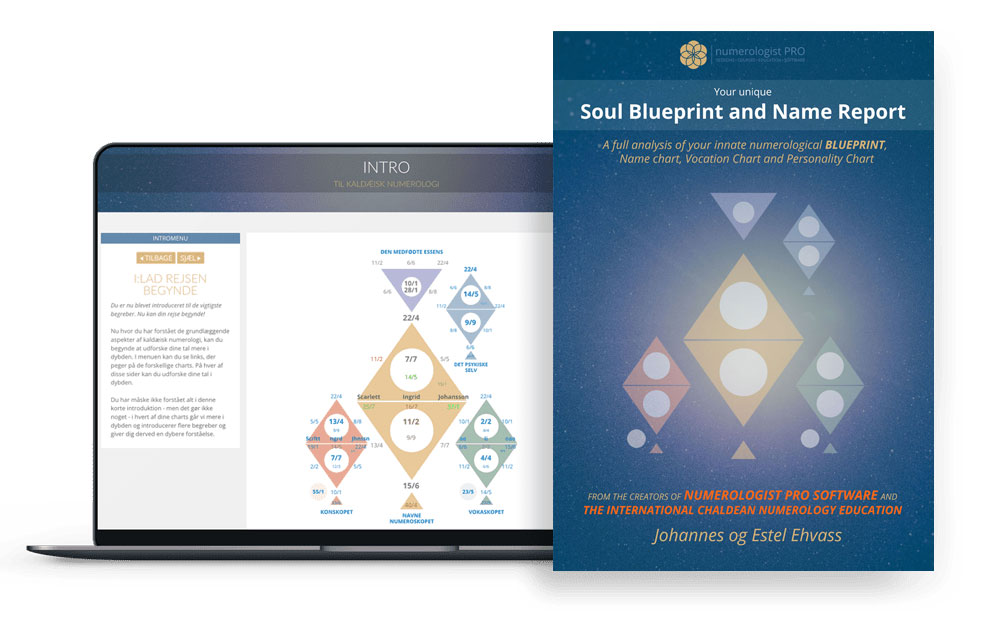Famous Medieval Astrologers: Biographical Spotlights on Notable Figures

Johannes Ehvass
Welcome, dear reader! Together, we embark on a captivating journey into astrology, a timeless art and science that has accompanied humanity since its earliest days. Each astrological discovery not only mirrors the era and culture it emerged from but also feels like a celestial gift, as if the universe is directly speaking to us. Through these articles, I share with you the profound journey of how astrology has grown and evolved alongside us. Let's explore this cosmic connection that has, for millennia, enriched our understanding of ourselves and the universe around us.
Introduction

Throughout the Middle Ages, as astrology permeated various facets of life, certain individuals stood out for their exceptional contributions to this celestial art.
From court astrologers who advised kings and queens to scholars who penned influential texts, these figures left an indelible mark on the trajectory of astrological thought.
This article shines a spotlight on some of the most iconic medieval astrologers and delves into their life stories, contributions, and enduring legacies.
Claudius Ptolemy (100-170 AD)
Life and Background
Claudius Ptolemy was an Egyptian astronomer, mathematician, and astrologer who lived in Alexandria. His work in the second century AD laid the foundations for Western astronomical and astrological practices for centuries to come.
Major Works and Contributions
Ptolemy’s “Tetrabiblos” is a seminal text in the field of astrology, presenting a comprehensive system that combines natural and judicial astrology. It has been the cornerstone of astrological teaching and practice, with its influence spanning across the medieval period into the Renaissance and beyond.
Legacy
Ptolemy’s work became the gold standard for astrological practice in the Western world. His approach to astrology as a part of a rational and natural order of the cosmos influenced not just astrologers but scholars in various fields of science and philosophy.
Guido Bonatti (c. 1223–1300)
Life and Background
As one of the most renowned astrologers of the 13th century, the Italian Guido Bonatti served at the courts of several Italian city-states. His services were not limited to casting horoscopes; he also advised on political and military strategies based on astrological readings.
Major Works and Contributions
Bonatti’s magnum opus, the “Liber Astronomiae” or “Book of Astronomy,” stands as a comprehensive treatise on medieval judicial astrology. Within its pages, he covers a range of topics from natal astrology to horary and electional astrology, providing insights, techniques, and examples for each.
Legacy
While facing criticism from religious quarters during his life, Bonatti’s influence persisted. His methods and techniques, especially in horary astrology, continue to resonate with astrologers today. His integration of Arabic astrological knowledge with Western thought solidified his position as a bridge between two rich traditions.
Abraham ibn Ezra (1089–1167)
Life and Background
Born in Tudela, Spain, Abraham ibn Ezra was a polymath excelling in various fields, including astrology, mathematics, and poetry. As a Jew in the Islamic Spain of his time, he was exposed to the rich tapestry of Andalusian knowledge, which greatly influenced his works.
Major Works and Contributions
Ibn Ezra penned numerous astrological treatises. Among them, “The Book of Reasons” critically examined the teachings of Ptolemy, while “The Book of Nativities” delved into natal astrology. He also wrote on electional and horary astrology, providing keen insights into each domain.
Legacy
As a conduit between Islamic and Christian worlds, ibn Ezra played a pivotal role in transmitting Arabic astrological knowledge to Europe. His commentaries and critical examinations of foundational texts provided fresh perspectives and remain influential in contemporary astrological studies.
John of Sacrobosco (c. 1195-1256)
Tractatus de Sphaera (Treatise on the Sphere)
Sacrobosco’s “Tractatus de Sphaera” was a foundational textbook on astronomy in the Middle Ages, widely used in European universities for centuries after its publication. It laid out the basic elements of the Ptolemaic system, which was the prevailing cosmological model that underpinned astrology.
Educational Influence
Because “Tractatus de Sphaera” was a standard educational text, Sacrobosco’s influence spread widely through the academic community, affecting the teaching of both astronomy and astrology. His works helped to standardize and disseminate astrological knowledge within the framework of medieval education.
Legacy
Sacrobosco’s influence endured well into the Renaissance, making him a key figure in the transmission of astronomical and astrological knowledge from the classical world to the later medieval and early modern periods.
Roger of Hereford (fl. 1176)
Life and Background
Roger of Hereford was an English astrologer and cleric who lived in the 12th century. His work is indicative of the period’s intellectual climate in England, where astrology was pursued in conjunction with other scientific inquiries.
Major Works and Contributions
His translations from Arabic texts and original compositions on astrology contributed significantly to the dissemination of astrological knowledge in medieval England. His work helped to integrate the advanced Arabic astrological science into the Western tradition.
Legacy
Roger’s contributions helped establish astrology as a respected science in medieval England, influencing the curriculum of educational institutions and the practices of later astrologers.
Hermes Trismegistus
Life and Background
Hermes Trismegistus is a legendary Hellenistic figure, often identified with the Greek god Hermes and the Egyptian god Thoth. He is reputed to be the author of the Hermetic Corpus, a series of texts that are the foundation of Hermeticism.
Major Works and Contributions
The Hermetic texts, particularly those concerned with astrology, have played a crucial role in the development of Western esoteric traditions. These writings address the influence of the stars on the earthly realm and the use of astrology for spiritual ascension.
Legacy
The philosophy attributed to Hermes Trismegistus has had a profound and enduring influence on Western mystical thought, including Renaissance thinkers who sought to reconcile Hermeticism with Christianity.
Geoffrey Chaucer (c. 1343-1400)
Life and Background
Geoffrey Chaucer, known as the Father of English literature, was also a philosopher, diplomat, and astronomer. He is best known for his literary masterpiece, “The Canterbury Tales.”
Major Works and Contributions
Chaucer’s “Treatise on the Astrolabe” is a didactic work that introduces the use of the astrolabe to a lay audience. It’s one of the earliest technical manuals in English and demonstrates the practical applications of astrology in daily life.
Legacy
While Chaucer’s literary works overshadow his contributions to astrology, his “Treatise on the Astrolabe” highlights the importance of astrology and astronomical instruments in medieval society and has historical significance as a document of practical science.
Albertus Magnus (c. 1200-1280)
Life and Background
Albertus Magnus, also known as Saint Albert the Great, was a German Dominican friar and bishop who became famous for his comprehensive knowledge of the natural sciences, philosophy, and theology.
Major Works and Contributions
Albertus Magnus wrote extensively on a variety of scientific and philosophical topics. In the realm of astrology, he explored its relationship with the natural world and the philosophical implications of celestial influences on earthly affairs.
Legacy
Albert’s works bridged the gap between faith and reason, laying the groundwork for later medieval scholars. His writings on astrology helped to contextualize it within the broader scope of natural philosophy and science.
Lesser-Known Contributors to Medieval Astrology:
- Roger Bacon (c. 1214-1294):
- Contribution: An English philosopher and Franciscan friar who wrote on a variety of scientific subjects, including astrology.
- Michael Scot (c. 1175-c. 1232):
- Contribution: His translations of Arabic astrological texts into Latin helped spread astrological knowledge throughout Europe.
- Dante Alighieri (1265-1321):
- Contribution: While primarily known for his literary work, Dante’s “Divine Comedy” contains many references to the cosmology and astrology of his time.
- Johannes de Sacrobosco (John of Holywood):
- Contribution: Not to be confused with John of Sacrobosco mentioned above, he was another medieval scholar who wrote on astronomy and astrology.
- Richard of Wallingford (1292-1336):
- Contribution: An English abbot and mathematician, he designed an astronomical clock and wrote on astrology and its computations.
- Levi ben Gerson (Gersonides) (1288-1344):
- Contribution: A Jewish philosopher, he wrote “The Wars of the Lord” which includes discussions on astrology and astronomy.
- Nicole Oresme (c. 1320-1382):
- Contribution: A philosopher who wrote on a variety of scientific topics and critiqued some of the astrological practices of his time.
- William of Conches (c. 1090-c. 1154):
- Contribution: His philosophical works discussed the influence of stars on the sublunar world, which was a common theme in medieval astrology.
- Cecco d’Ascoli (1257-1327):
- Contribution: An Italian astrologer and physician who wrote “Acerba,” a poem that incorporates astrological themes and was condemned for heresy.
- John Gower (c. 1330-1408):
- Contribution: A contemporary of Chaucer, his poetry often referenced astrological concepts.
These figures, among others, carried the tradition of astrological study and practice forward throughout the medieval period in Europe, adapting and integrating a mix of inherited wisdom and contemporary scholarship. Each contributed to the preservation and development of astrology, influencing the direction it would take in subsequent centuries.

Johannes & Estel: Renowned authorities in Numerology, Astrology, and the esoteric arts. As the founders of Scandinavia's premier Numerology school, we're delighted to share our insights through this curated series on astrology. Dive in and discover the stars.
The Worlds Most Advanced Numerology Report

Your birthdate reveals your unique life purpose, potentials, talents, weaknesses, and karma in this life.
Your names show what you attract into your life regarding your career, relationships, happiness, money, and success.
GET THE REPORT HERE
Introduction to Astrology
The history of Astrology
Moving beyond deterministic astrology
Foundation of Astrology: Planets, Signs and Houses
Astrology and the Holographic Universe
The Holographic Universe
The Human Psyche as a Mirror to The Solar System
The Human Body as a Mirror to The Star Signs
Astrology Background
Egyptian Astrology
Mayan Astrology
Chinese Astrology
Indian Astrology - Jyotish
Celtic Astrology
Tibetan Astrology
Mesopotamian Astrology
Early Mesopotamian Astrology: The Dawn of Celestial Divination
Enuma Anu Enlil: The Epicenter of Babylonian Celestial Omen Interpretation
Babylonian and Chaldean Astrology
Babylonian and Chaldean Astrology
Chaldean influence and evolution
Chaldean Wisdom: Safeguarding and Transmitting Astrological Knowledge
Hellenistic Astrology
Hellenistic Astrology background
Claudius Ptolemy and Tetrabiblos
Vettius Valens
Dorotheus of Sidon
Persian Astrology
Persian Astrology background
Sassanian Astrology
Late Antiquity and The Transition Period
Late Antiquity and The Transition Period
Hellenistic to Islamic Transition: The Torchbearers of Astrological Wisdom
Islamic Golden Age
Arabian Astrology Background
Arabian Astrology Contributions
Medieval Astrology
Introduction: The Medieval Cosmos
Monastic Preservers: Astrological Knowledge in the Dark Ages
Astrology in Medieval Medicine
Kings, Queens, and Constellations: Astrology in the Medieval Court
The Church and the Stars: A Contentious Relationship
Universities and Scholastic Pursuits: Academic Astrology
Astronomy & Astrology: Tools of the Trade
Medieval Astrological Houses and the Synthesis of Traditions
Transition to the Renaissance: Humanism and the Celestial Arts
Reflections: Medieval Astrology's Echoes in Modern Practice
Astrological Art of the Middle Ages
Famous Medieval Astrologers
Medieval Astrological Texts
Renaissance Astrology
Renaissance Humanism and Astrology
Scientific Advancements and Astrology
The Social Fabric: Astrology in Everyday Renaissance Life
Court Astrologers of the Renaissance
Controversies and Conflicts: Astrology Under Scrutiny
Renaissance Texts and Authors: Continuation of a Tradition
Astrology and Art: Celestial Imagery in the Renaissance
Renaissance Astrological Practices: Evolutions and Innovations
End of the Renaissance: The Gradual Decline of Astrological Influence
Renaissance Astrology's Echo in the Modern World
Enlightenment Astrology
Introduction: The Enlightenment and Astrology
Challenging the Stars: Astrology's Critics during the Enlightenment
Astrology and the New World
Astrology in the 19th Century
The Dawn of Psychological Astrology
Astrology in the 20th Century: A Modern Renaissance
Astrological Associations and Schools
Modern Controversies and Astrology
Astrology and Popular Culture
Astrology and Technology
Current Trends and Future Directions in Astrology
Conclusion: Reflecting on Astrology's Evolution
The Planet Significances
The Sun in Astrology
The Moon in Astrology
Mercury in Astrology
Venus in Astrology
Mars in Astrology
Jupiter in Astrology
Saturn in Astrology
Uranus in Astrology
Neptune in Astrology
Pluto in Astrology
Chiron in Astrology
Black Moon Lilith in Astrology
Pars Fortuna in Astrology
Ceres in Astrology
Houses in Astrology
Introduction to Astrological Houses
The Angular Houses
The Succedent Houses
The Cadent Houses
The 1st House
The 2nd House
The 3rd House
The 4th House
The 5th House
The 6th House
The 7th House
The 8th House
The 9th House
The 10th House
The 11th House
The 12th House
Interaction Between Houses
Derived Houses, House Rulers, and Interceptions
Conclusion: Synthesizing House Knowledge
All Materials © 2023 & 2024 Numerologist PRO
Terms of Service: Information provided by Numerologist PRO and/or from this web site is not intended as advice (medical, psychological, financial or other), nor is it intended to replace your work with a qualified professional (medical or otherwise). You should maintain your relationship with your providers and consider the services of this site as informational only. Any information, stories, examples, or testimonials presented on this website do not constitute a warranty, guarantee, or prediction regarding the outcome of an individual. This web site is a sharing of knowledge and information of numerology/energy work based on the experiences of Numerologist PRO. You are encouraged to make your own decisions based on your own research and inner guidance. By booking and receiving services, you agree to fully release and hold harmless Numerologist PRO and all it's affiliated numerologists from and against any liability or claim that may arise out of or in connection with their service(s).
Numerologist PRO © 2021

CONTACT
numerologist@numerologistpro.com
LIKE US, and get free numerology tools, info about your personal numbers, best business dates of the year - and more!
YOUR FREE NUMEROSCOPE CHART
Enter your name and email below and get access to our free online numerology chart tool.